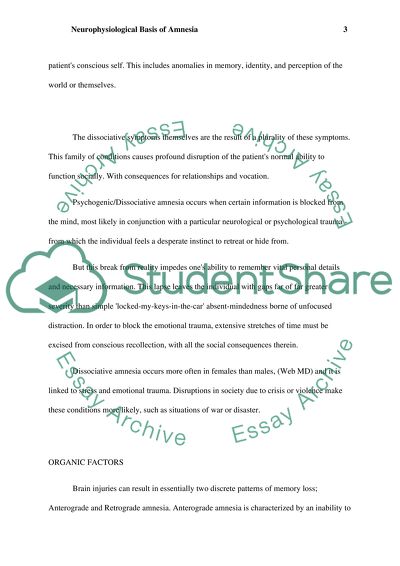Cite this document
(“Neurophysiological Basis of Amnesia Essay Example | Topics and Well Written Essays - 3000 words”, n.d.)
Retrieved de https://studentshare.org/psychology/1390550-neurophysiological-basis-of-amnesia
Retrieved de https://studentshare.org/psychology/1390550-neurophysiological-basis-of-amnesia
(Neurophysiological Basis of Amnesia Essay Example | Topics and Well Written Essays - 3000 Words)
https://studentshare.org/psychology/1390550-neurophysiological-basis-of-amnesia.
https://studentshare.org/psychology/1390550-neurophysiological-basis-of-amnesia.
“Neurophysiological Basis of Amnesia Essay Example | Topics and Well Written Essays - 3000 Words”, n.d. https://studentshare.org/psychology/1390550-neurophysiological-basis-of-amnesia.


